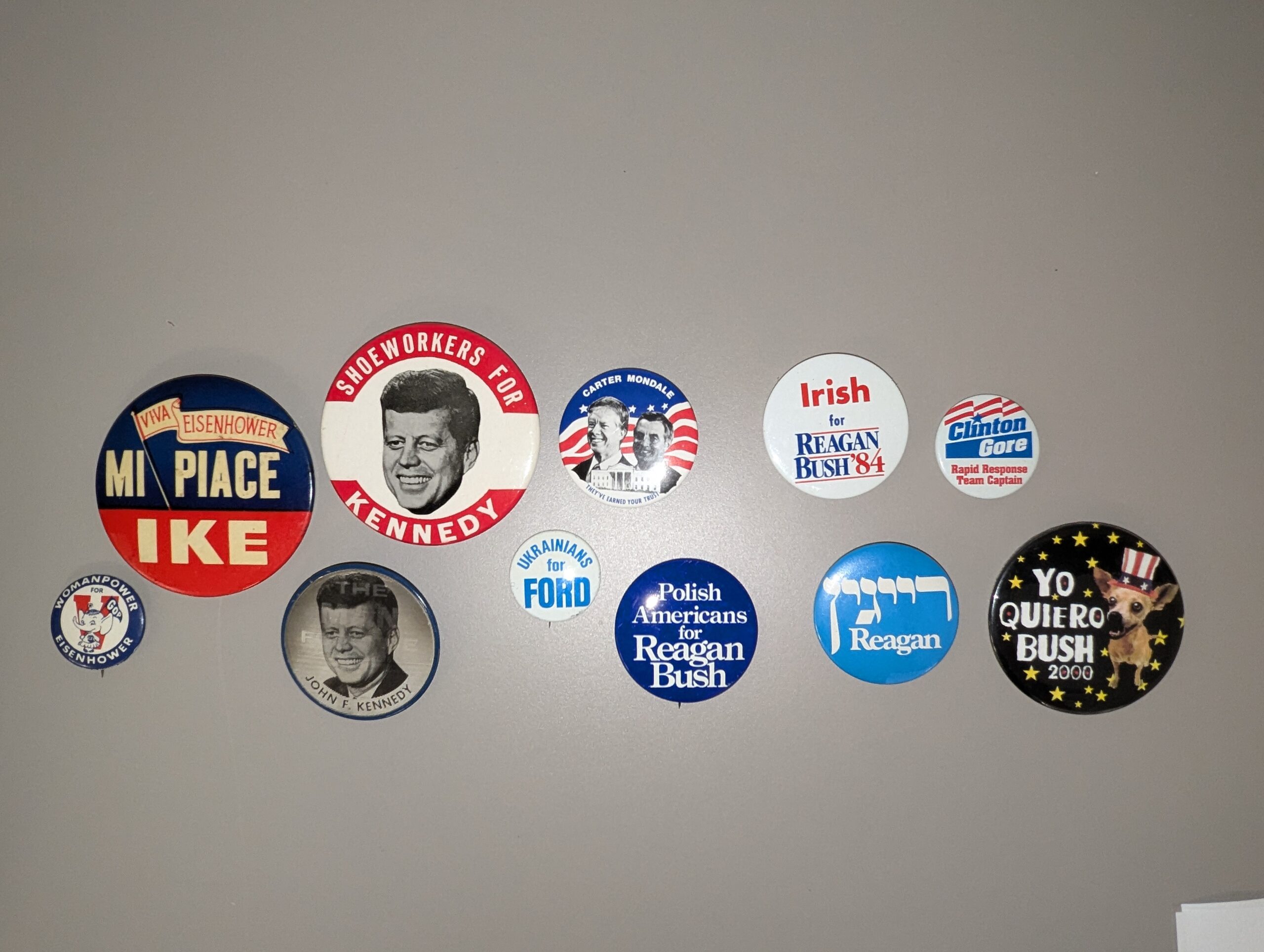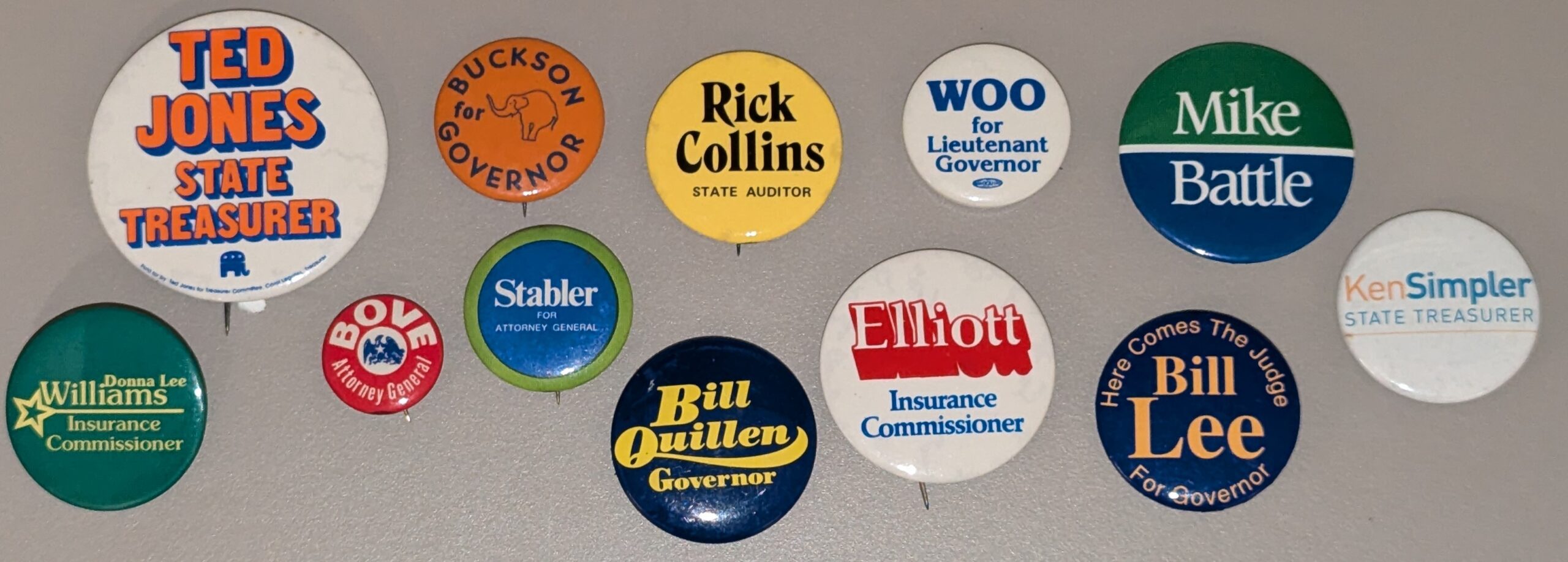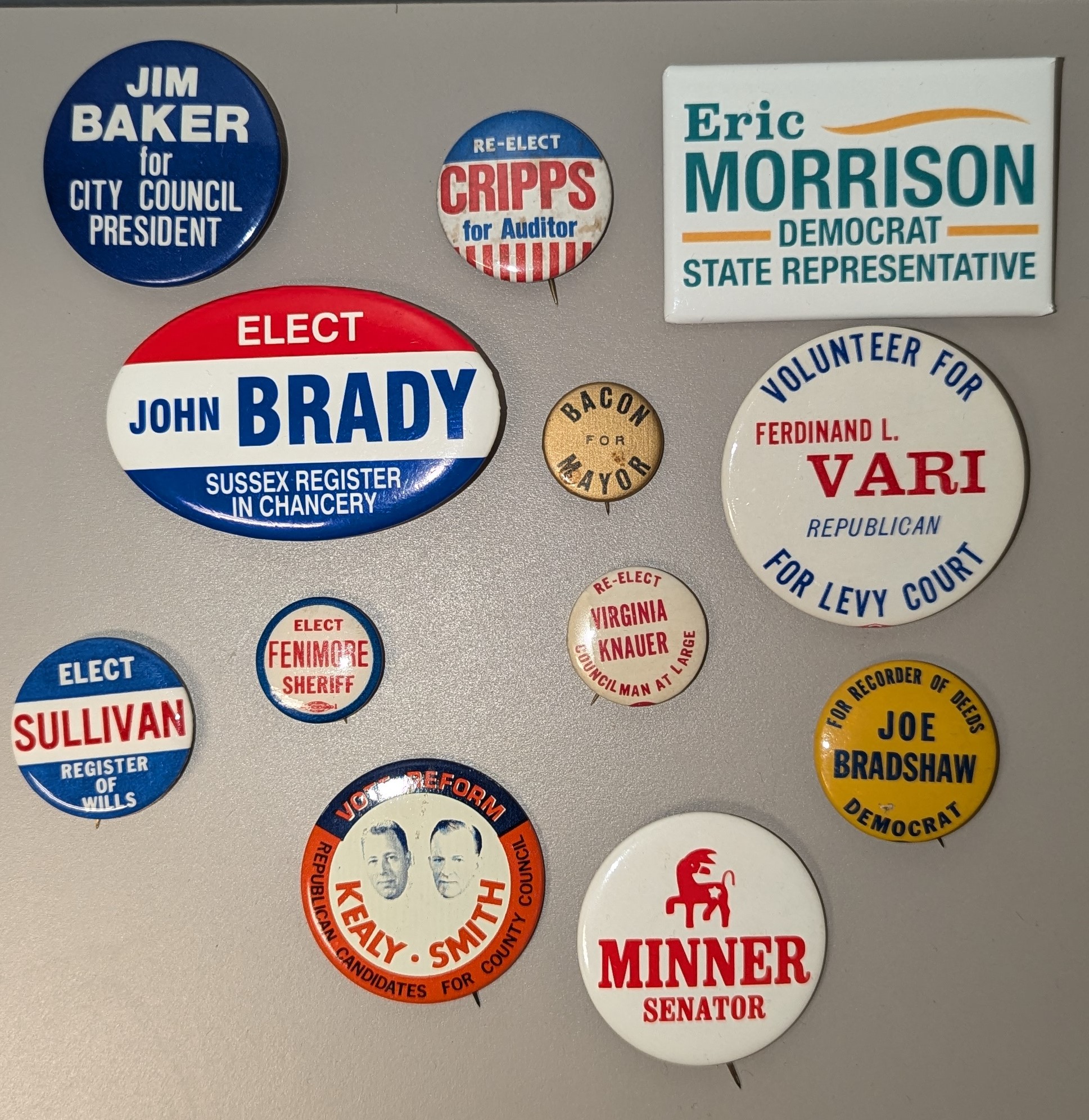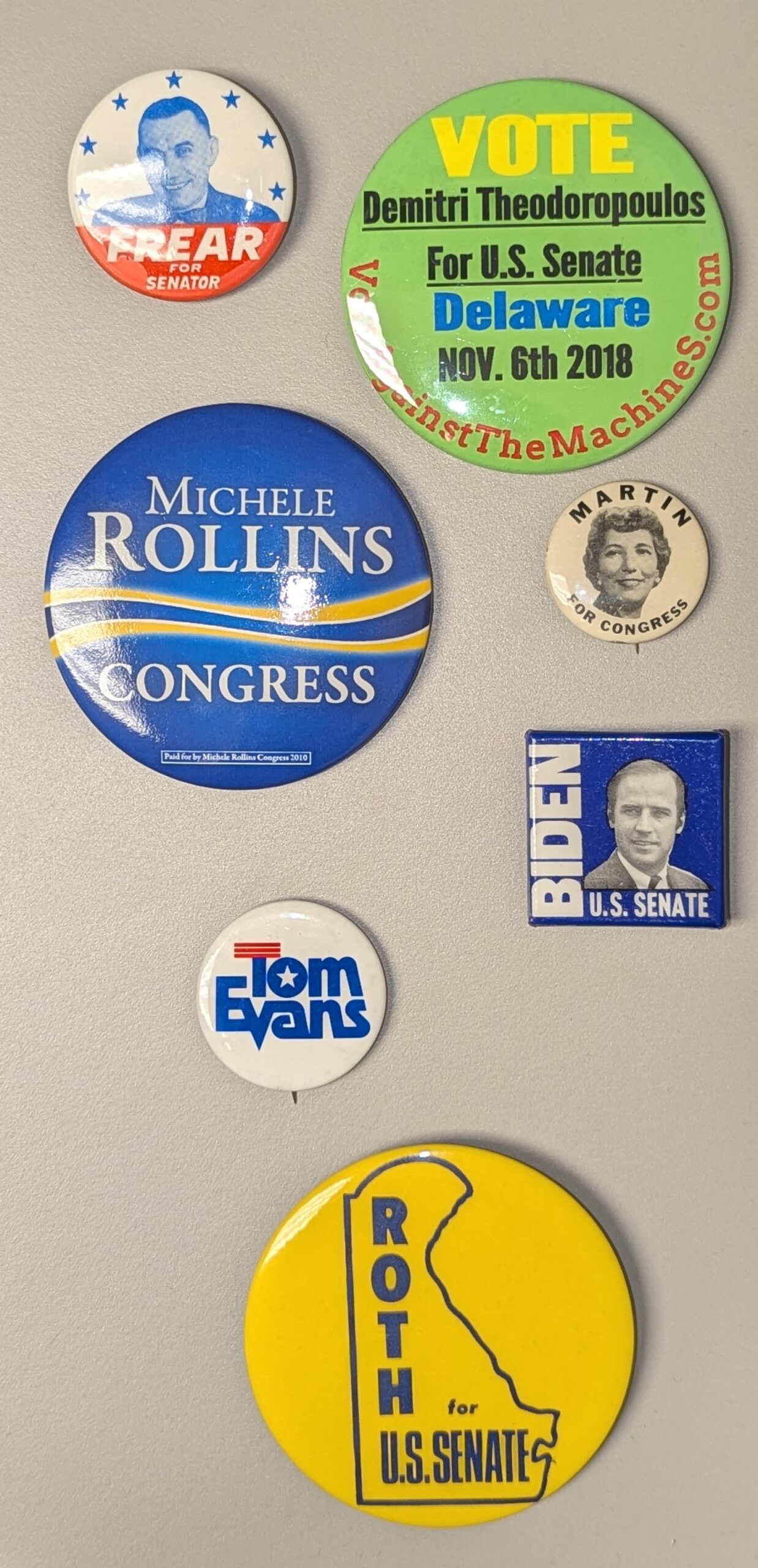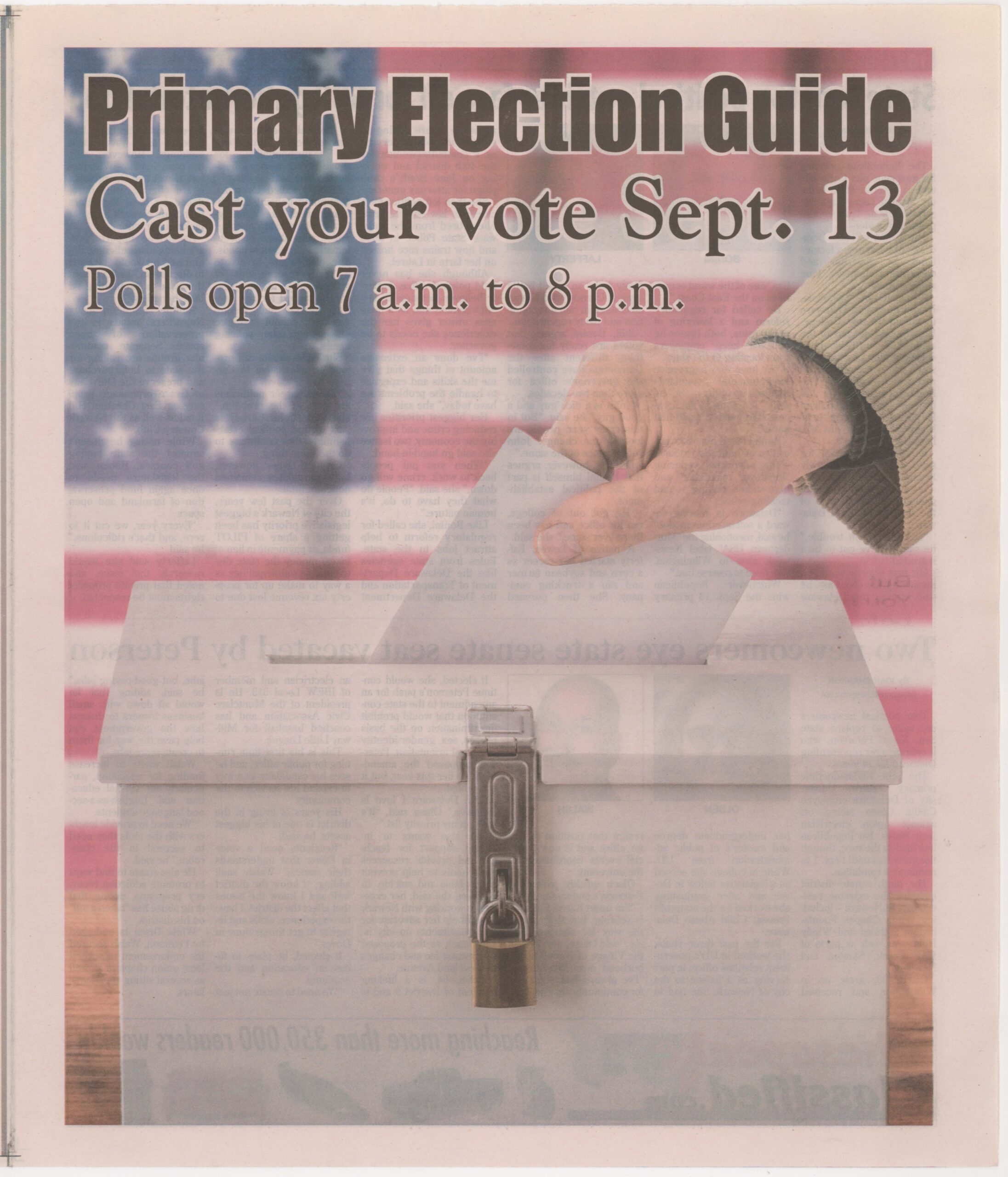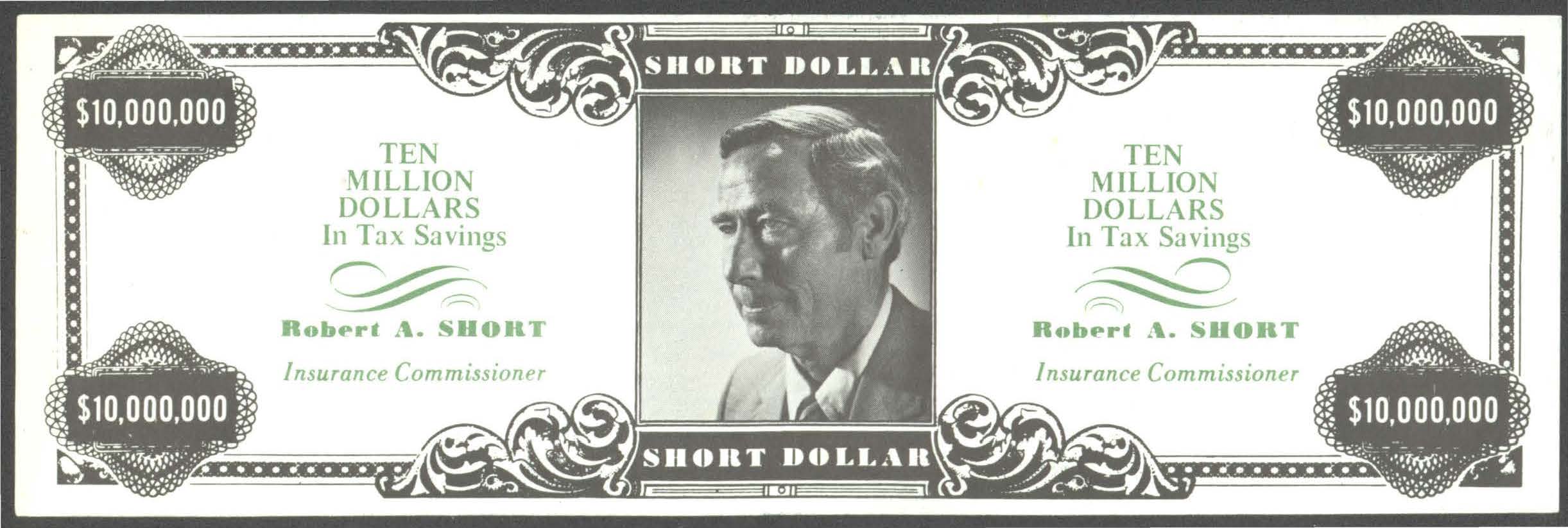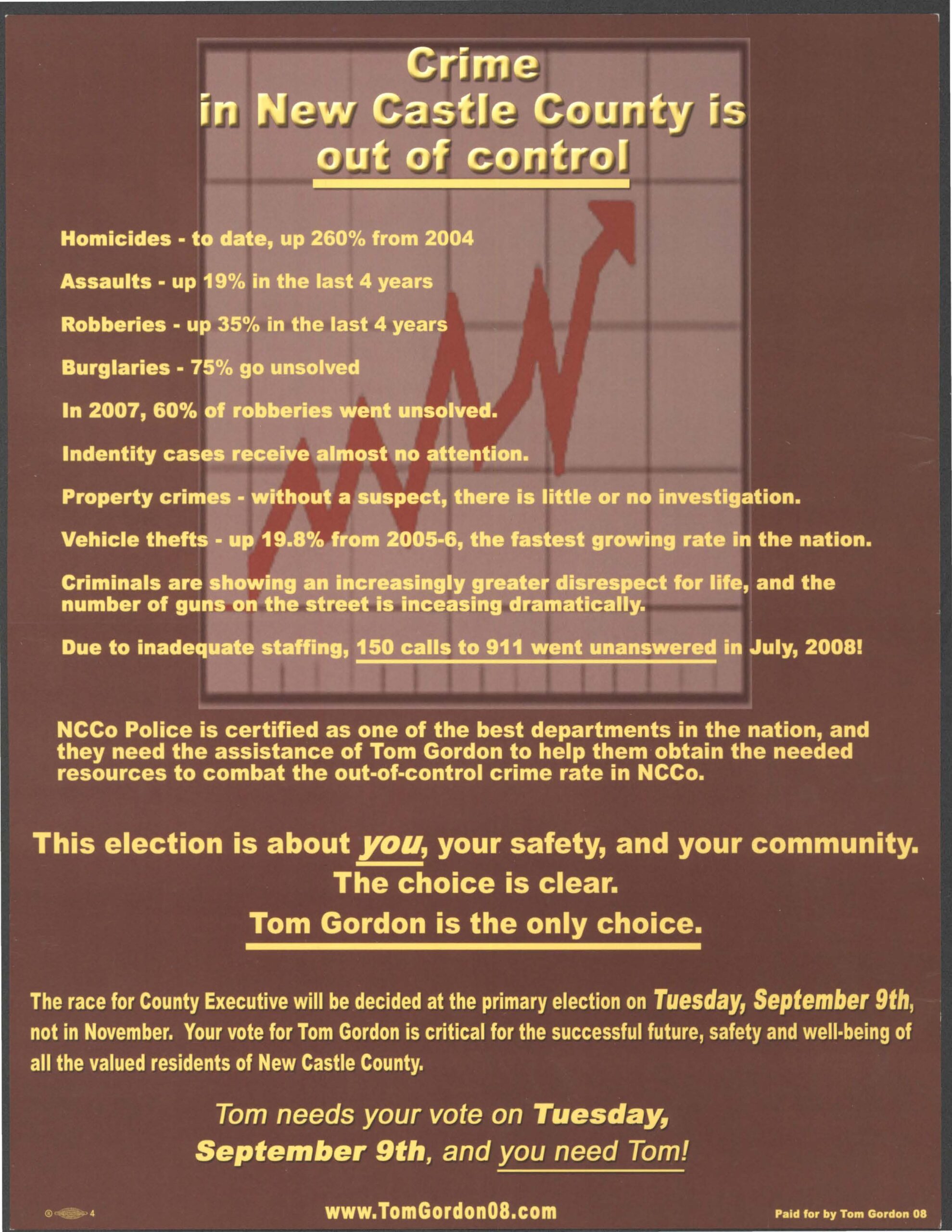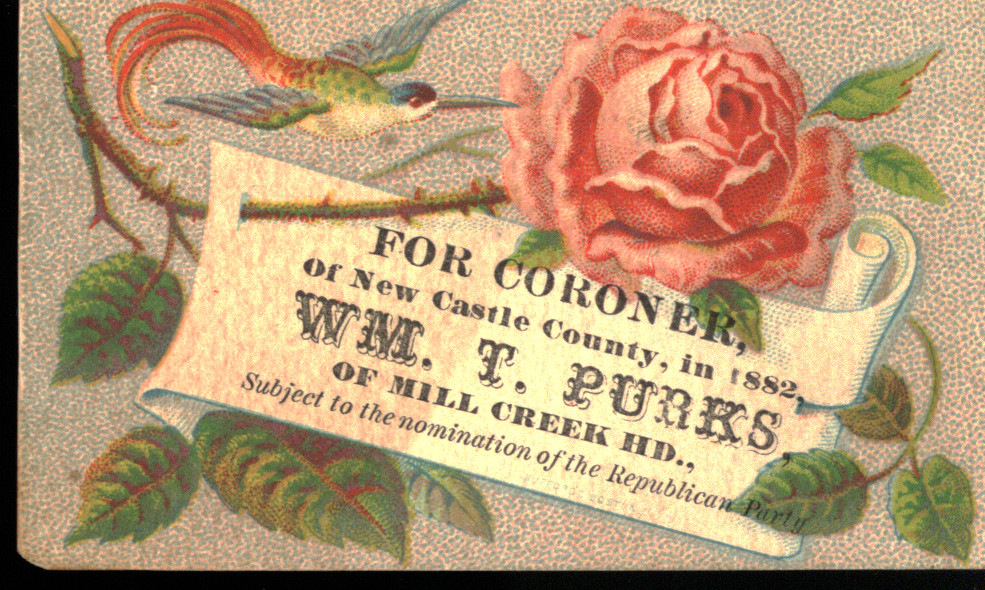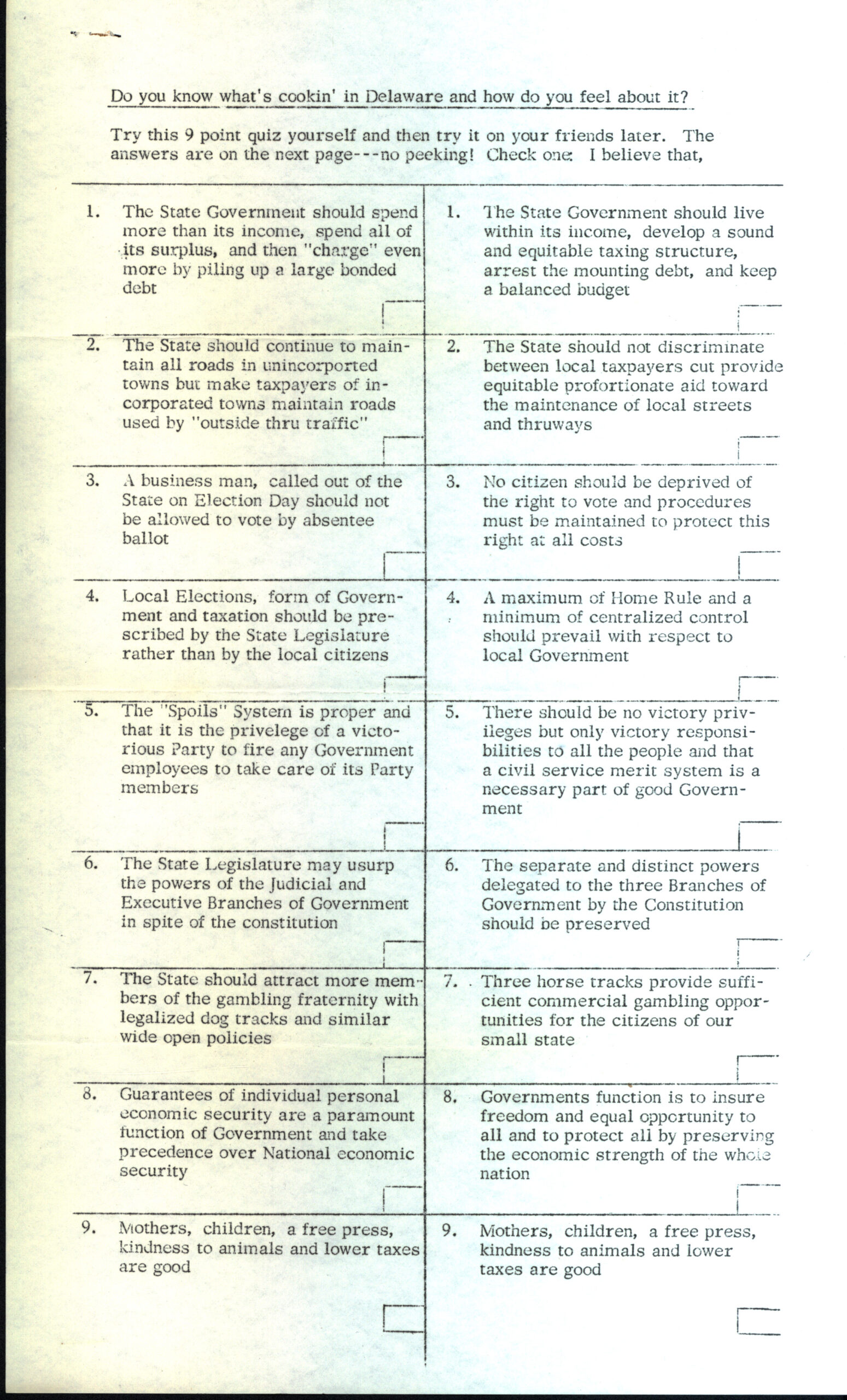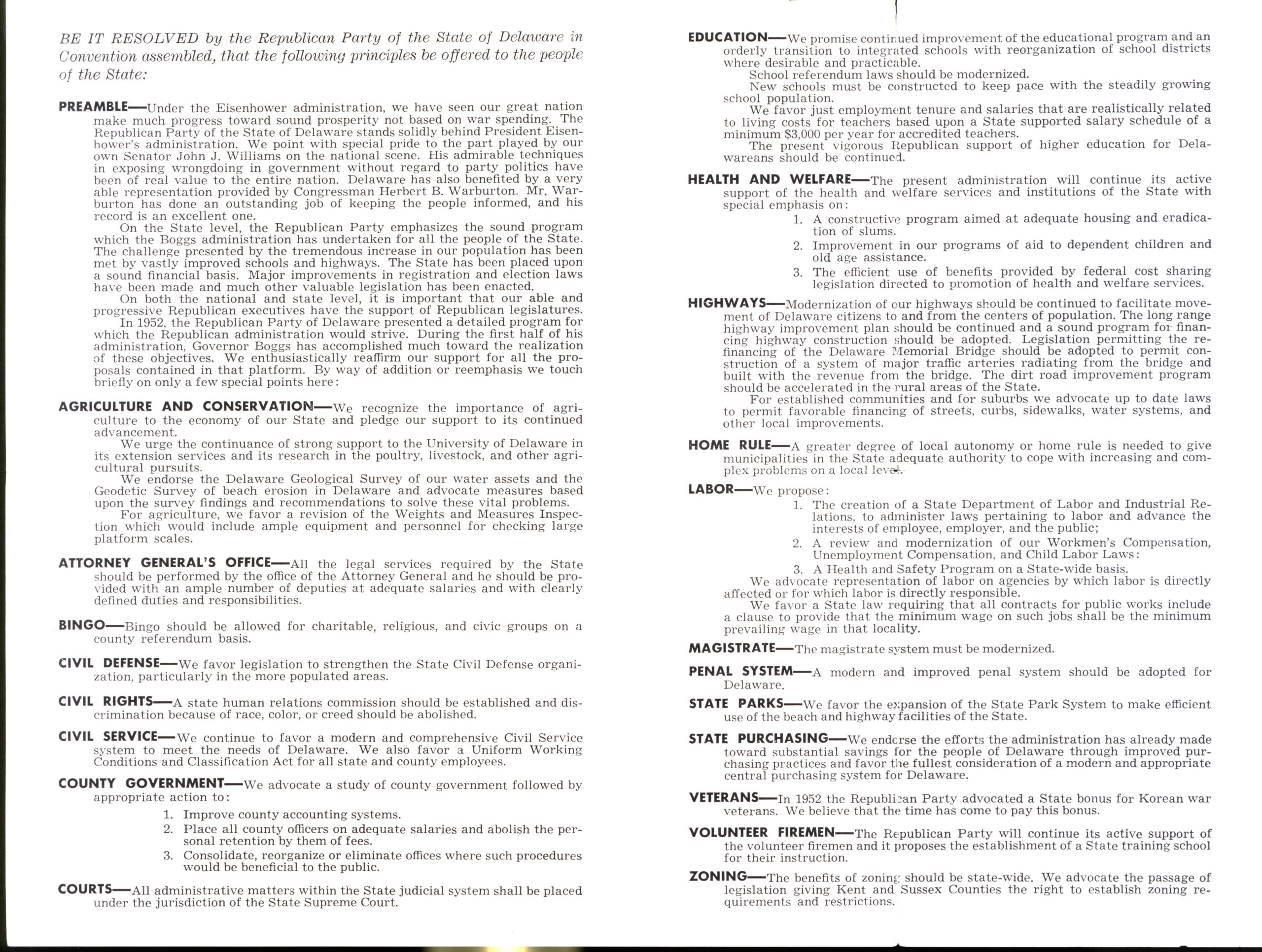“The Stakes are too High for Government…”
During election years, it is important that voters know who is running for what office (both federal, state, and local), their policy positions, and the key issues being discussed by candidates and voters. Likewise, the candidates and their political parties, in trying to win as many votes as possible, try to educate prospective voters by sharing policy positions and attempting to build an affinity with voters. Over the years, candidates, political parties, and the press have tried numerous ways to help educate voters before they cast their ballots.
Political campaign buttons are one of the most iconic pieces of political ephemera, created by candidates seeking office at all levels or highlighting support among specific groups. Dating back to the 18th century as clothing buttons and fasteners, advances in photography, chemistry, cheaper production have contributed to their ubiquity in American politics.
The guide shares information about candidates, as well as logistical information about the election, such as the hours polling places will be open.
Direct mail campaigns are a vital tool for candidates to connect with voters and target their campaign messaging to key issues and specific demographics.
Like mailers, calling cards have been used to build name recognition for candidates among the electorate.
A mailed-out voter “quiz” produced and distributed by the Delaware Republican party to contrast their positions with their Democratic opponents.
Political parties at various levels (local, state, national) summarize their political goals and policy ideas in the form of platform documents, such as this one. Here, the Delaware state Republic Party outline the major policy stances state Republican candidates ran on during the 1954 campaign. The goal of publishing and disseminating a party platform is to educate and gain support from the electorate.
Additional Resources:
- To learn more about political issues and candidates, visit the library database National Journal.
- To learn more about trending political issues and topics, visit the library database, CQ Researcher.

